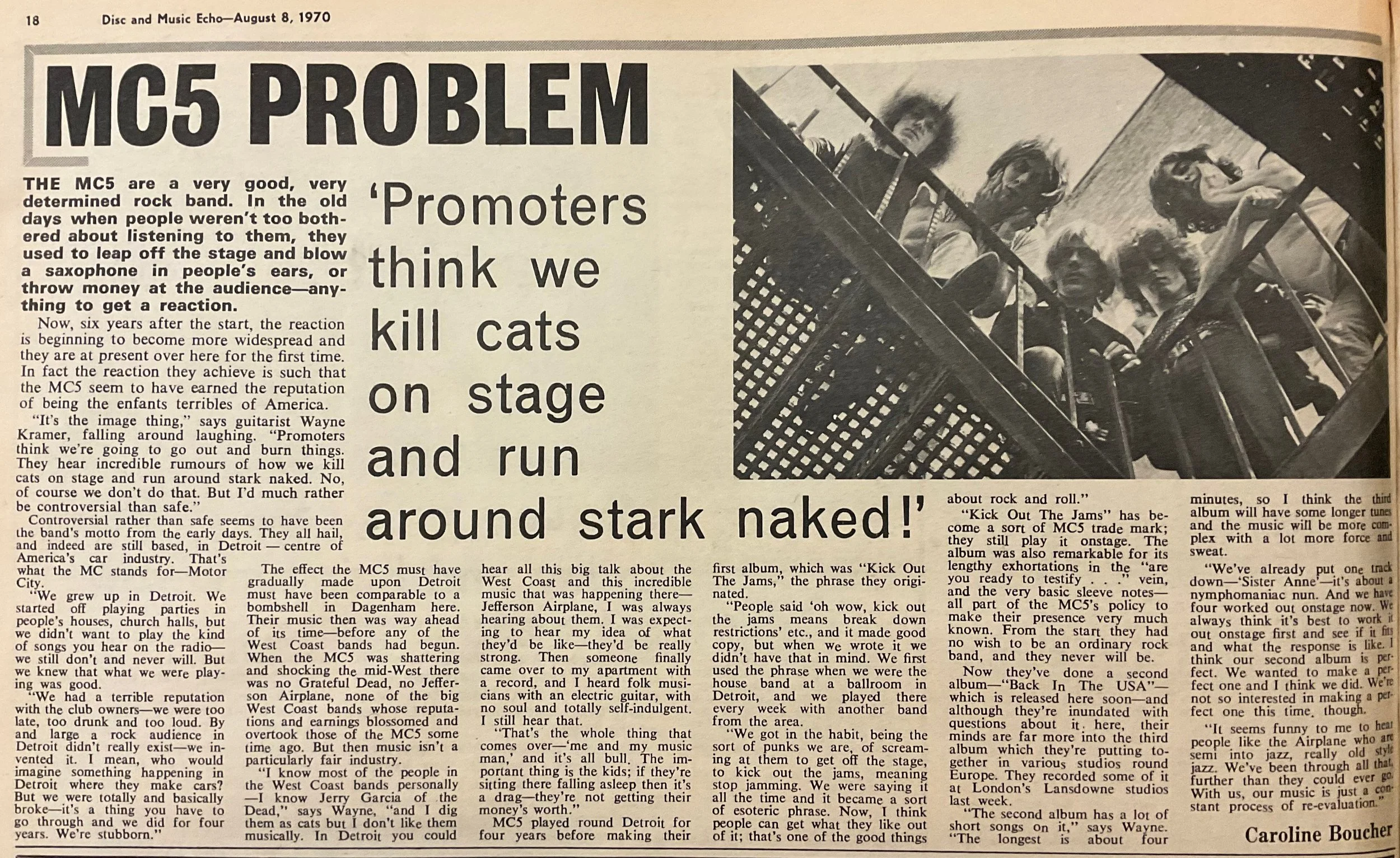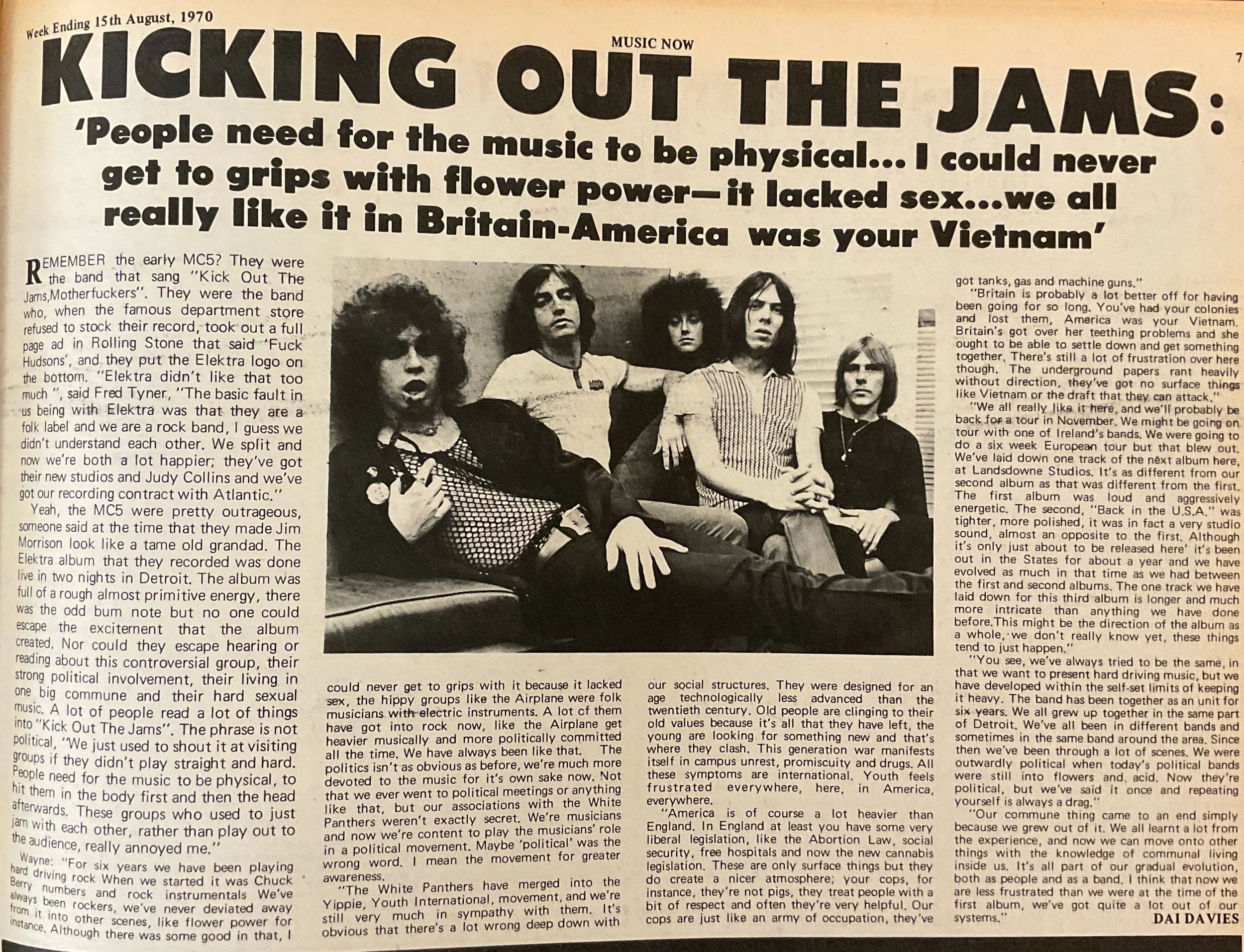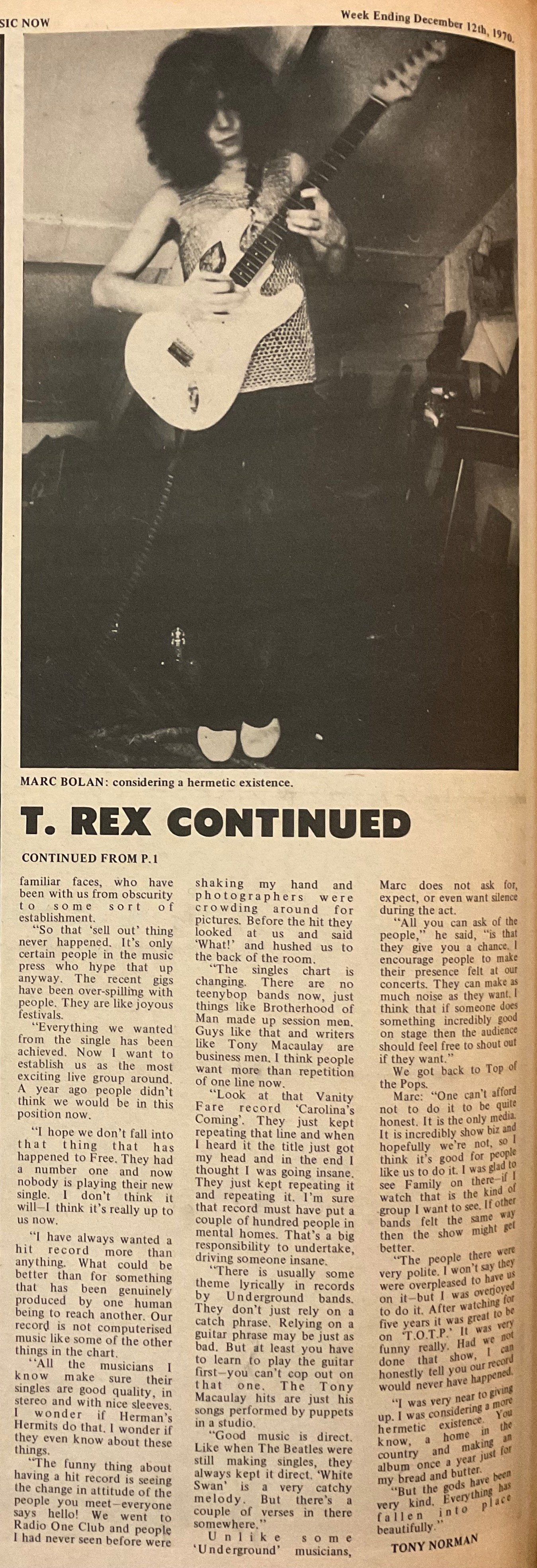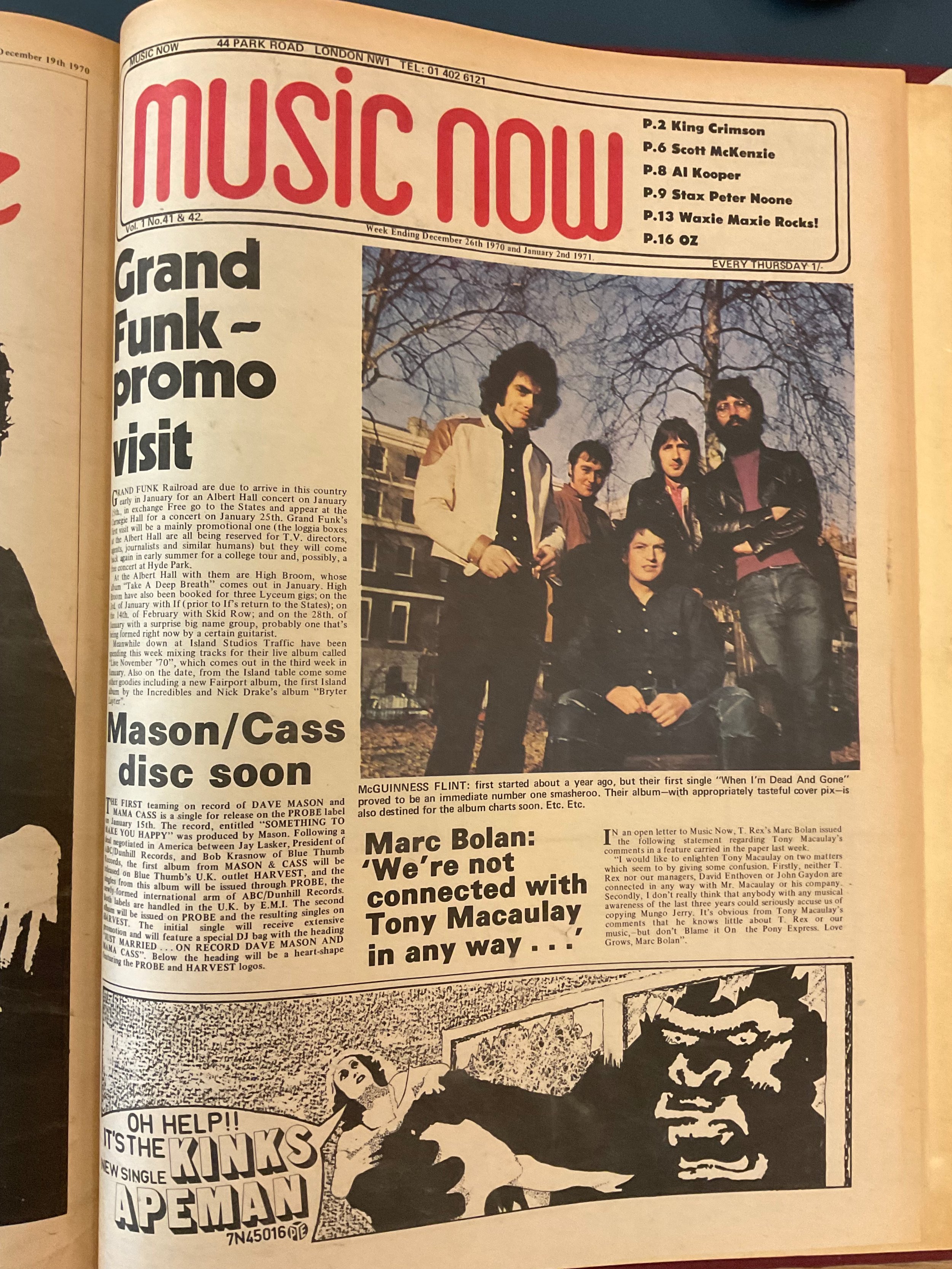Music Now was a weekly paper that ran for 50 issues between March 21 1970 and February 21 1971. It was edited by Jim Watson, formerly of Record Mirror and used a small staff of correspondents – Derek Boltwood, Tony Norman, Karen de Groot and Dai Davies formed the core of operations. Columnists included Simon Stable, their man about town in Manchester and Ladbroke Grove, Max ‘Waxie Maxie’ Needham’s fusillades on rock n’ roll, Sapphire’s superior Reggae Page and Pete Senoff’s America Now.
With its emphasis on progressive rock, Music Now’s most obvious competitor was the recently launched Sounds (October 1970), which it differentiated itself from with its use of colour photographs on the cover and in some of its editorial content.
Rarely referenced, Music Now is something of a small, untouched, treasure trove. Here are the key pieces that covered T. Rex’s move from the underground into the light in those heady, mercurial days.















